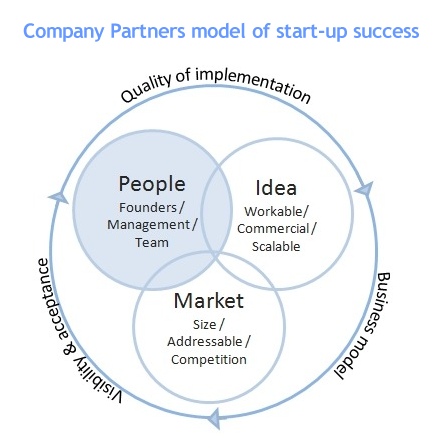 As promised the chancellor has confirmed in his March budget documents that there will be a Seed Enterprise Investment Scheme (SEIS) starting from 6th April 2012, although it didn’t get a mention in his actual speech.
As promised the chancellor has confirmed in his March budget documents that there will be a Seed Enterprise Investment Scheme (SEIS) starting from 6th April 2012, although it didn’t get a mention in his actual speech.
Just to clarify for anyone confused by the similarity of SEIS with an existing scheme, there is already an Enterprise Investment Scheme (EIS) which targets larger businesses rather than start-ups.
This big brother to the SEIS also received good news in the budget, with the qualifying size of a company moving from a maximum gross asset size of £7 million with 50 employees, to £15 million with 250 employees. This means later stage investment prospects will now qualify for EIS (see EIS for more information).
The basic information that I covered on my last blog on the SEIS remains unchanged, so I won’t go over that again. Suffice to say it is worth ensuring that your new business qualifies (not all industries do – eg. Property development and financial services) and publicise to potential Investors that they can get tax relief by investing in your business.
Clearly for Investors it’s a no-brainer that you should utilise this new scheme for your investments.
So how do you make use of it?
Luckily those nice people at HMRC have put together a fairly comprehensive web-page that explains the SEIS and how to apply for it. See http://www.hmrc.gov.uk/seedeis/index.htm
They are careful to say that although the scheme starts on the 6th April, until the budget gets Royal Assent (around July) it isn’t set in stone, but it’s unlikely to alter in my view.
The HMRC web-pages have a section on how to get advance assurance that your business and the shares that you are going to issue to an Investor will qualify. It can be useful to do this in making your opportunity attractive.

 Am I the only one that is getting confused by the increasing number of initiatives that the government is rolling out to encourage entrepreneurship? Or frustrated because they don’t actually seem to make a difference?
Am I the only one that is getting confused by the increasing number of initiatives that the government is rolling out to encourage entrepreneurship? Or frustrated because they don’t actually seem to make a difference? I must admit this blog sounds a bit as though I’m standing on a soap-box, but a recent comment by Google’s chairman, Eric Schmidt, rang true with me. He said:
I must admit this blog sounds a bit as though I’m standing on a soap-box, but a recent comment by Google’s chairman, Eric Schmidt, rang true with me. He said: Enterprise Zones are the latest government incentive to get businesses growing. Within the Enterprise Zone you can get superfast broadband, lower rates & taxes, and low levels of regulation & planning controls.
Enterprise Zones are the latest government incentive to get businesses growing. Within the Enterprise Zone you can get superfast broadband, lower rates & taxes, and low levels of regulation & planning controls. Almost all businesses now days have to have a web site. Even if you don’t sell over the web, your customers will expect to be able to find you on it.
Almost all businesses now days have to have a web site. Even if you don’t sell over the web, your customers will expect to be able to find you on it. Whenever I hear advice from successful entrepreneurs the most consistent mantra is “always hire the best people you can afford”.
Whenever I hear advice from successful entrepreneurs the most consistent mantra is “always hire the best people you can afford”.

 I wonder if anyone you know has been the victim of these? Various business journals have been mentioning for some time that the Inland Revenue has decided to target small companies. On the belief that such businesses would have poor record keeping and so would be able to have more tax squeezed out of them.
I wonder if anyone you know has been the victim of these? Various business journals have been mentioning for some time that the Inland Revenue has decided to target small companies. On the belief that such businesses would have poor record keeping and so would be able to have more tax squeezed out of them. I went along to The London Funding Conference at the British Library last night and was again impressed by the Library’s ability to host these events.
I went along to The London Funding Conference at the British Library last night and was again impressed by the Library’s ability to host these events.